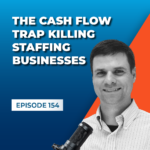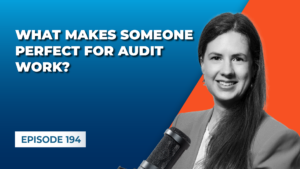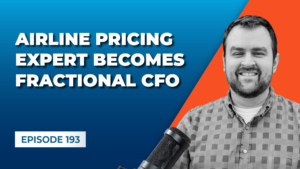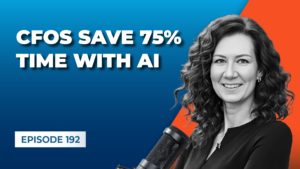In this episode, James Kennedy sits down with Scott Geller, CEO of Path Predict LLC and fractional CFO, to unpack the nuts and bolts of running and scaling staffing firms. Scott explains why staffing is really two sales pipelines (candidates and clients), how cash flow can get crushed by weekly payrolls and 30–90 day receivables, and the practical levers owners can pull – pricing, margins, funding – to stay liquid and grow. He also shares a venture story: guiding a COVID-era sports-tech startup past a so-so VC offer to a stronger strategic exit by building runway, discipline, and options.
About Scott Geller
Scott is the founder and CEO of Path Predict LLC, a fractional-CFO firm launched in 2020. He partners with owner-led companies – especially staffing firms under ~$30M revenue – to install finance discipline, engineer profitability, and navigate fundraising or exits. Outside the spreadsheet, he’s a veteran host of Louisiana-style crawfish boils.
What You’ll Learn
- Staffing, demystified: Why every staffing business is two pipelines (talent + jobs) and how to balance them.
- Cash is king (and tricky): Managing weekly payroll vs. 30–90 day collections; when to use a line of credit vs. factoring – and when to get off it.
- Unit economics that matter: Bill rate, pay rate, and margin – how a few hundred basis points make or break the model.
- KPIs for staffing: DSO, gross margin %, operating expense per internal head and per placed worker, and cash runway.
- Negotiation in constrained markets: Setting a walk-away point when dominant buyers (e.g., insurers/VMOs) squeeze rates.
- From VC to strategic exit: Scenario planning, toll-gates, and building leverage before you fund – or sell.
- Scott’s 4-pillar CFO framework: Operational Excellence, Cash Optimization, Profitability Engineering, and Capital Allocation.
Episode Highlights
- “A staffing firm can have 10 internal employees and 200 people on assignment – that’s why revenue can look big while cash is tight.”
- “Factoring buys time, but it also buys a smaller margin. Know when to wean off it.”
- “Pricing that moves margin from 21% to 22% can fund your whole finance function.”
- “Never negotiate without a walk-away. If a rate cut crosses your red line, be ready to say no.”
- “Owners make better decisions when they’re looking at cash forecasts and scenarios, not gut feel.”
More About Scott’s Role
At Path Predict, Scott serves as a fractional CFO focused on four pillars:
- Operational Excellence – clean books, right tools, right roles;
- Cash Optimization – 13-week and monthly forecasting, funding strategy, yield on idle cash;
- Profitability Engineering – client/job/unit margin analysis and pricing moves;
- Capital Allocation – planning, metrics, and investor/creditor readiness.
Typical clients are founder-led staffing firms (<$30M revenue) that want clear numbers, tighter cash control, and a plan to scale – or exit – without hiring a full-time CFO.




